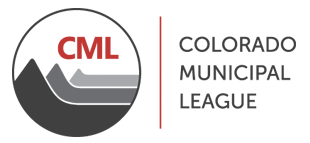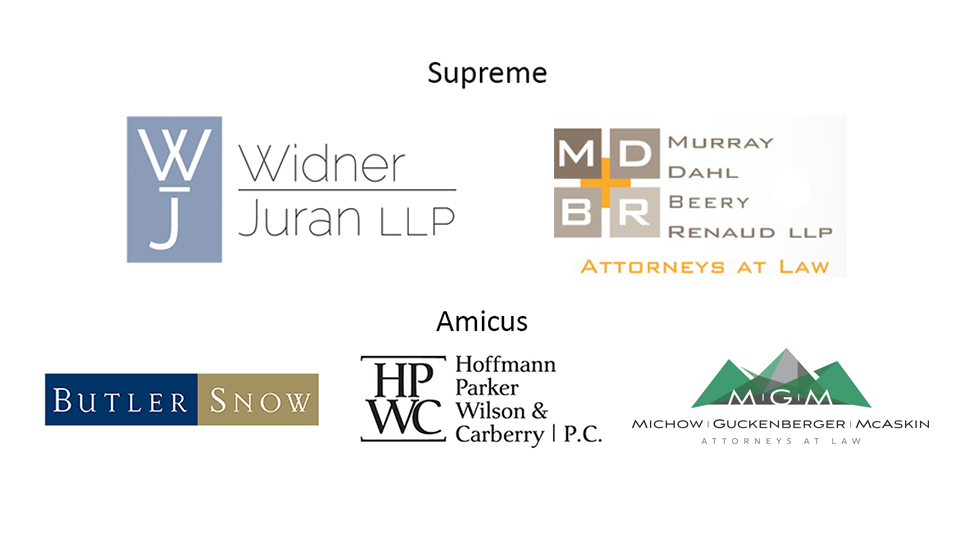
Annual Seminar on Municipal Law
CML's Annual Seminar provides expert Colorado-specific information that is directly relevant to the daily practice of municipal attorneys in the state, as well as opportunities to network with peers.
This year's event was held October 10 & 11 in Steamboat Springs, CO. Reach out to Karen at krosen@cml.org if you have any questions on materials.
8 - 9 am
Registration & Continental Breakfast
9 - 10:30 am
Annual Update on Municipal Law
Speaker: Robert Sheesley, CML General Counsel
This session will review Colorado, Tenth Circuit, and U.S. Supreme Court appellate decisions of interest to Colorado municipal attorneys, reported between September 20, 2024, and October 9, 2025. Areas of focus include Constitutional issues, employment law, municipal liability, government immunity, law enforcement, campaigns and elections, sunshine laws, land use, and eminent domain.
10:45 am - 12 pm
Developments in Open Meetings & Executive Sessions
Speaker: Corey Hoffmann, Hoffmann, Parker, Wilson & Carberry, P.C.
This presentation will address the following regarding Open Meetings and Executive Sessions: (1) recent developments in case law regarding open meetings and executive sessions including the potential application of two pending Colorado Supreme Court cases which have been argued and are awaiting a decision from the Court – one involving whether the remedy of cure is available to address an open meetings violation, and the second involving what governmental actions could be interpreted as waiving the executive session privilege, even including waiver of the attorney-client privileged communications; (2) the parameters of what may constitute a “decision” made in executive session as opposed to merely giving direction to counsel (or to negotiators) in an executive session; (3) the interplay and potential overlap of various bases for holding an executive session; and (4) common and recurring questions regarding whether certain matters can be discussed in executive session.
12:15 - 1:30 pm
Lunch Session: Survey of Local Revenue and Financing Tools
This panel will focus on the evolving landscape of local government financing tools as legislative and policy changes at the state and federal level have impacted local government budgets and caused local leaders to get creative. The discussion will consider how local government decides which tools to implement and why, and what their experiences of adopting some of these strategies has been. The session will highlight some of the recent state and federal policy and legislative changes that are causing local governments to re-tool how they fund certain programs and will illustrate some of the obstacles and successes.
Speakers, Kirsten Crawford, Kaplan Kirsch LLP, Dan Foote, Steamboat Springs City Attorney and Dan Kramer, Estes Park Town Attorney.
1:45 - 3 pm
The Good Fight: Lessons in Appellate Advocacy
Court appearances can be infrequent occurrences for many municipal attorneys, and appellate practice even more rare. This panel will feature attorneys who appeared before the Colorado Supreme Court in matters of significance for municipalities (Colorado Oil & Gas Association v. City of Longmont, Hobbs v. City of Salida, and MetroPCS v. City of Lakewood). The panelists will share insights into their approaches and strategies to appellate briefing and advocacy and lessons they learned from oral argument.
Speakers: Dan Kramer, Estes Park Town Attorney; Erica Romberg, Senior Associate Attorney, Wilson Williams, Fellman Dittman and John VanLandschoot, City of Lakewood Senior Assistant City Attorney
3:15 - 4:15 pm
Dealing with Aging Oil and Gas Wells in Municipalities
Oil and gas wells in the
Denver Julesburg basin that covers much of the Front Range are reaching the end
of their useful lives. These old wells can impede other beneficial land uses,
but municipalities must first contend with inconsistent cleanup efforts. This
session will discuss common well-plugging practices and solutions for handling
challenging situations, including the use of eminent domain and procedures with
the Energy and Carbon Management Commission.
Speaker: Steven Louis-Prescott, Hamre, Rodriguez, Ostrander & Prescott, P.C.
4:30 - 6 pm
Welcome Reception
6 pm
Dinner on own
8 - 8:30 am
Registration & Continental Breakfast
8:30 - 9:30 am
Privacy, Cybersecurity, and AI - What Colorado Municipal Lawyers Should Know
Technology is becoming both integral to and integrated into municipal operations. This session will discuss the fast-developing areas of data privacy, cybersecurity, and artificial intelligence law. This session will summarize key sections of the Colorado Revised Statutes that municipal attorneys should be aware of concerning data privacy and cybersecurity. With respect to artificial intelligence, the session will provide a high-level overview of artificial intelligence concepts, use cases, and pitfalls for municipal governments, along with a summary of recent legislation (e.g., the Colorado Artificial Intelligence Act) aimed at regulating some of the unique risks posed by AI. The ever-evolving nature of technology, the business model and customs of technology providers, and the numerous legal developments surrounding the use of technology mean technology is becoming riskier. Low-dollar-value technology contracts can portend surprisingly high risks and consequences. The goal of this presentation is to broaden understanding among municipal attorneys about technology law issues and their unique risks, as well as to collectively explore solutions.
Speaker: Andy Frohardt, Assistant City Attorney, City of Boulder
9:30 - 10:30 am
Extreme Risk Protection Orders - Legal Landscape & Lessons Learned
This session will provide a practical overview of Colorado’s Extreme Risk Protection Orders (ERPOs), beginning with the history and framework established by HB 19-1177 and Title 13, Article 14.5, C.R.S. We’ll walk through the T/ERPO process—including filings, burdens of proof, hearings, and service requirements—before examining how ERPO filings play out across different counties using data from CDPHE. The session will also highlight recent case law and share real-world lessons learned to help participants better understand the application and impact of ERPOs in Colorado.
Speakers: Jim Martin, Assistant City Attorney, City of Durango and Mandy MacDonald, Senior Assistant City Attorney, City of Aurora
10:45 am - 12 pm
Legal Ethics in Practice
Unique dilemmas often arise in the practice of municipal law when it comes to applying and interpreting the Rules of Professional Conduct. Using learned experiences and practical hypotheticals, this panel will explore how the professional responsibility standards affect their daily practice on issues including defining the scope of representation, communication, conflicts, confidentiality, supervision of subordinates, and transactions with persons other than clients. Attendees will learn how to recognize ethical issues and how to navigate them with confidence.
Panelists: Rachel Morris, City Attorney, City of Arvada; Chris Price, Attorney, Widner Juran LLP and Luis Toro, Senior Counsel, City of Boulder
12 pm
Seminar Ends

